As a young female working in the office, frequent tea breaks involve sugary and fried snacks, or junk and processed foods. You may also eat out frequently for breakfast, lunch, and dinner or rely on processed and quick foods for snacks and meals.
Snacking habits in desk-bound work, eating high calorie and cholesterol takeout food
Such foods are loaded with sugar and unhealthy fats (trans fats and saturated fats).
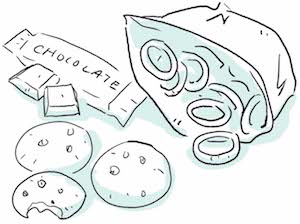 Trans fat is the worst of all types of dietary fat and it does not have any health benefits. It is present in almost all types of fast foods from cookies to pastries and French fries. Consuming foods that are rich in trans fats raises the amount of bad cholesterol (LDL) and decreases the amount of good cholesterol (HDL) in your blood. Trans fat causes inflammation and is therefore linked to stroke, diabetes, heart disease, and other chronic illnesses. They lead to insulin resistance that makes you prone to develop diabetes type 2.
Trans fat is the worst of all types of dietary fat and it does not have any health benefits. It is present in almost all types of fast foods from cookies to pastries and French fries. Consuming foods that are rich in trans fats raises the amount of bad cholesterol (LDL) and decreases the amount of good cholesterol (HDL) in your blood. Trans fat causes inflammation and is therefore linked to stroke, diabetes, heart disease, and other chronic illnesses. They lead to insulin resistance that makes you prone to develop diabetes type 2.
High-fat diets
Eating a diet that has a high amount of saturated fat raises your total blood cholesterol levels. It also increases your risk of developing blockages in the arteries in the body and in the heart.
High-sugar diets
Eating a diet rich in sugar is a major cause of many chronic diseases including diabetes and obesity. Drinking sugar-sweetened beverages such as sodas, sweet teas, and juices result in weight gain. Eating high-sugar diets may increase your risk of heart disease, high triglyceride levels, and high blood pressure. It may also increase the risk of developing cancer. Eating excessive amounts of processed foods such as cakes and sugary beverages may increase your risk of developing depression.

High-carb diets
A diet rich in refined carbohydrates including sugary drinks and foods increases your risk of developing acne. Sugary foods increase your levels of blood sugar and insulin leading to increased androgen secretion, inflammation and oil production. All of these factors play a major role in the development of acne.
Not eating enough fruits and leafy green vegetables in your diet may result in various types of mineral and vitamin deficiencies.
Irregular meals, tendency to skip meals due to a busy work schedule
As a young female working in the office environment, you have a tendency to skip meals due to a busy work schedule, which can have negative effects on your health. Skipping meals often can lead to binge eating on the next meal, eventually resulting in weight gain. It reduces your metabolic rate, zaps your energy, raises your risk of diabetes and impairs your focus, memory, mood, and concentration. It may also lead to anemia, impairment of thyroid function, bone loss, reduced immunity and deterioration of the dental health in the long term. You should try to eat small meals at frequent intervals during the day. It helps to regulate your blood sugar levels and prevents weight gain.
Result: Acne
Acne occurs when the hair follicles clog due to oil and dead skin cells. Due to acne whiteheads, blackheads and pimples appear on your face, forehead, chest, shoulders and upper chest. The signs and symptoms of acne vary depending on the severity of your condition. The different lesions of acne may include whiteheads, blackheads, papules, pimples, nodules and cystic lesions.
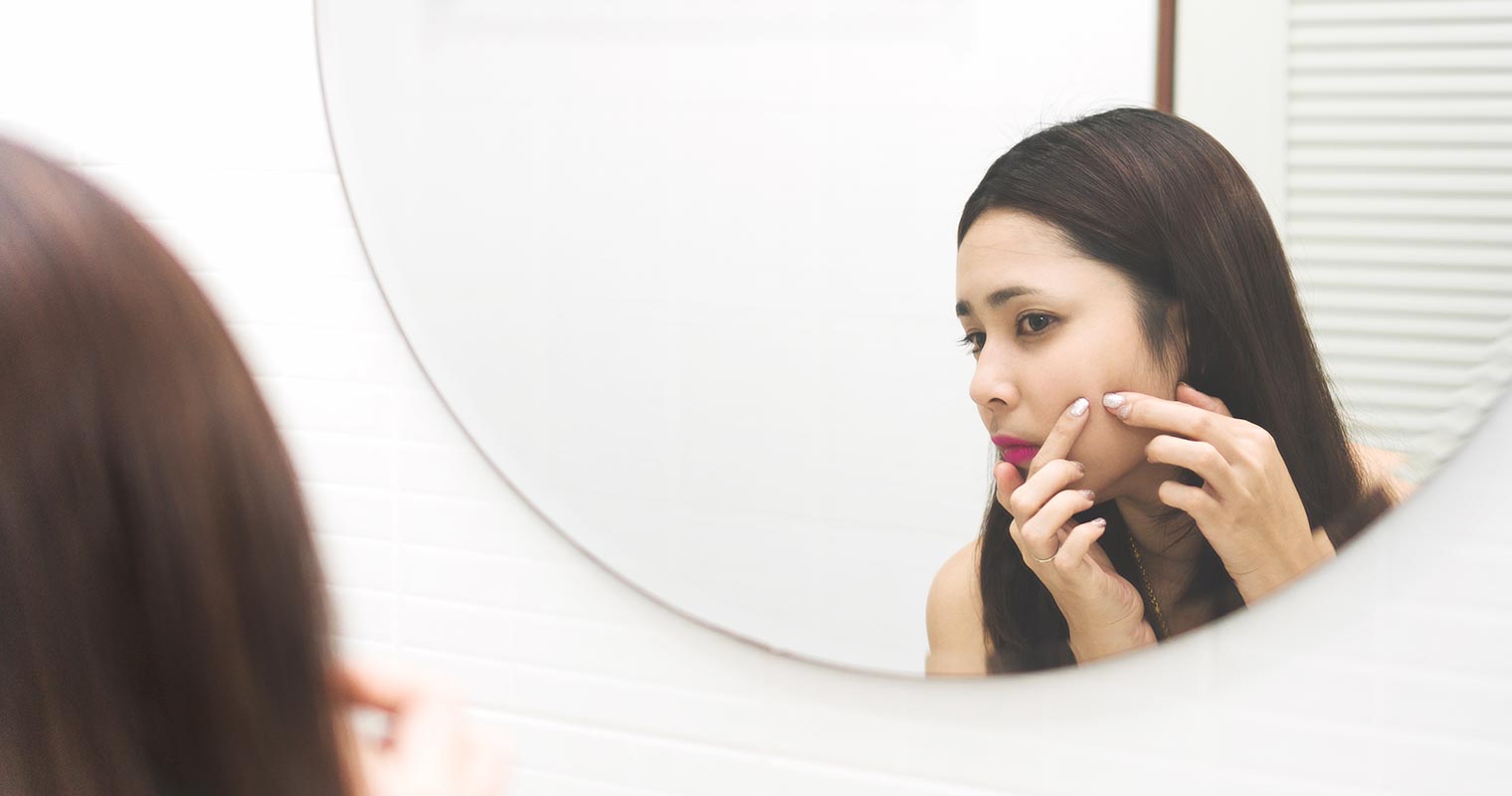
Medical treatment of acne
Benzoyl peroxide
It is available as either over-the-counter anti-acne product (for instance, Clearasil) or by prescription (for instance, Benoxyl and Persagel). It targets bacteria present on the surface of the skin, which aggravate acne. A common adverse effect is dryness and irritation of the skin.
Retinoids (derivatives of vitamin A)
Retin-A and Tazorac are available on prescription by a physician. They treat whiteheads and blackheads. A common adverse effect is an irritation of the skin. The retinoid that is taken orally (isotretinoin) is usually given to people who have severe acne. However, it has serious side effects, hence; it should be taken under the supervision of a physician.
Antibiotics
They are either applied topically (for instance, erythromycin and clindamycin) or taken orally (for instance, trimethoprim-sulfamethoxazole and tetracycline and its derivatives). They help in controlling surface bacteria and in reducing inflammation. Antibiotics produce better effects when they are given in combination with retinoids or benzoyl peroxide.
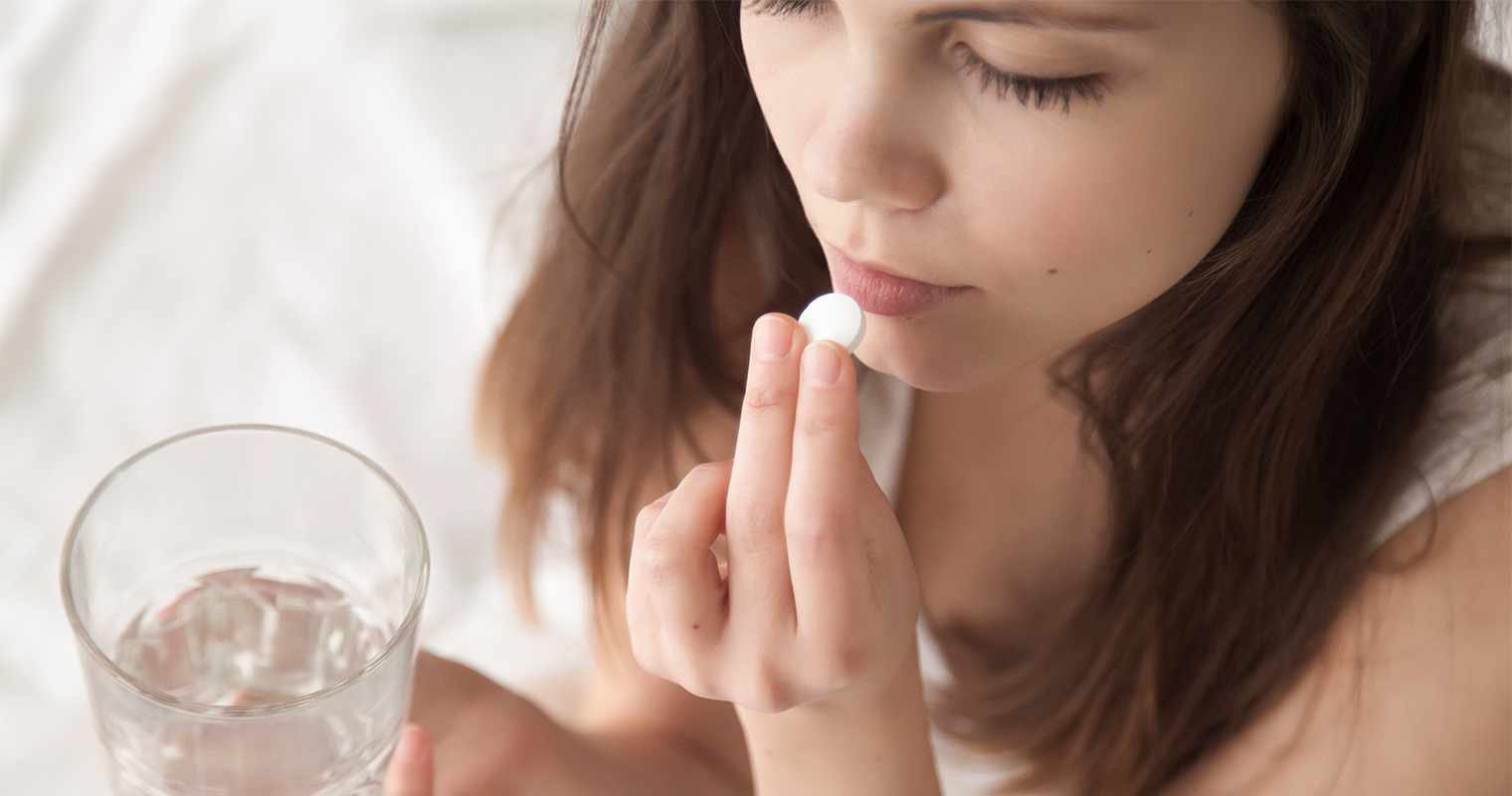
Salicylic acid and Azelaic acid
Azelaic acid is naturally present in whole-grain cereals and animal products. It has antibacterial properties, which make it an effective acne treatment. Salicylic acid helps in the prevention of clogging of hair follicles.
Hormone therapy
It is helpful in some females with acne particularly those who have symptoms and signs of excessive male hormone (androgen). It consists of birth control pills (low dose progesterone and estrogen) or spironolactone (anti-androgen medicine).
You may use the following therapies either alone or along with medicines to treat your acne:
Photodynamic therapy and lasers
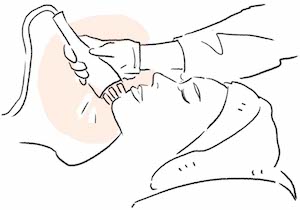 A wide variety of light-based therapies may be used to treat acne with some success. But, further research is required in this field.
A wide variety of light-based therapies may be used to treat acne with some success. But, further research is required in this field.
Chemical peels
In this therapy, a chemical solution such as retinoic acid, salicylic acid or glycolic acid is used to peel off the superficial skin layers.
Extraction of whiteheads and blackheads
Your doctor may use special tools to remove whiteheads and blackheads from your face.
Natural/organic ingredients to treat acne
Damask Rose
It is a very powerful essential oil that has antiseptic and anti-bacterial properties. It helps in calming the redness, inflammation, and irritation of acne.
How to use damask rose oil?
You can use damask rose oil as a skin toner or astringent by adding a couple of drops of it in cold water. Rinse your face using this water and it helps in closing your open pores and healing the lesions of acne.
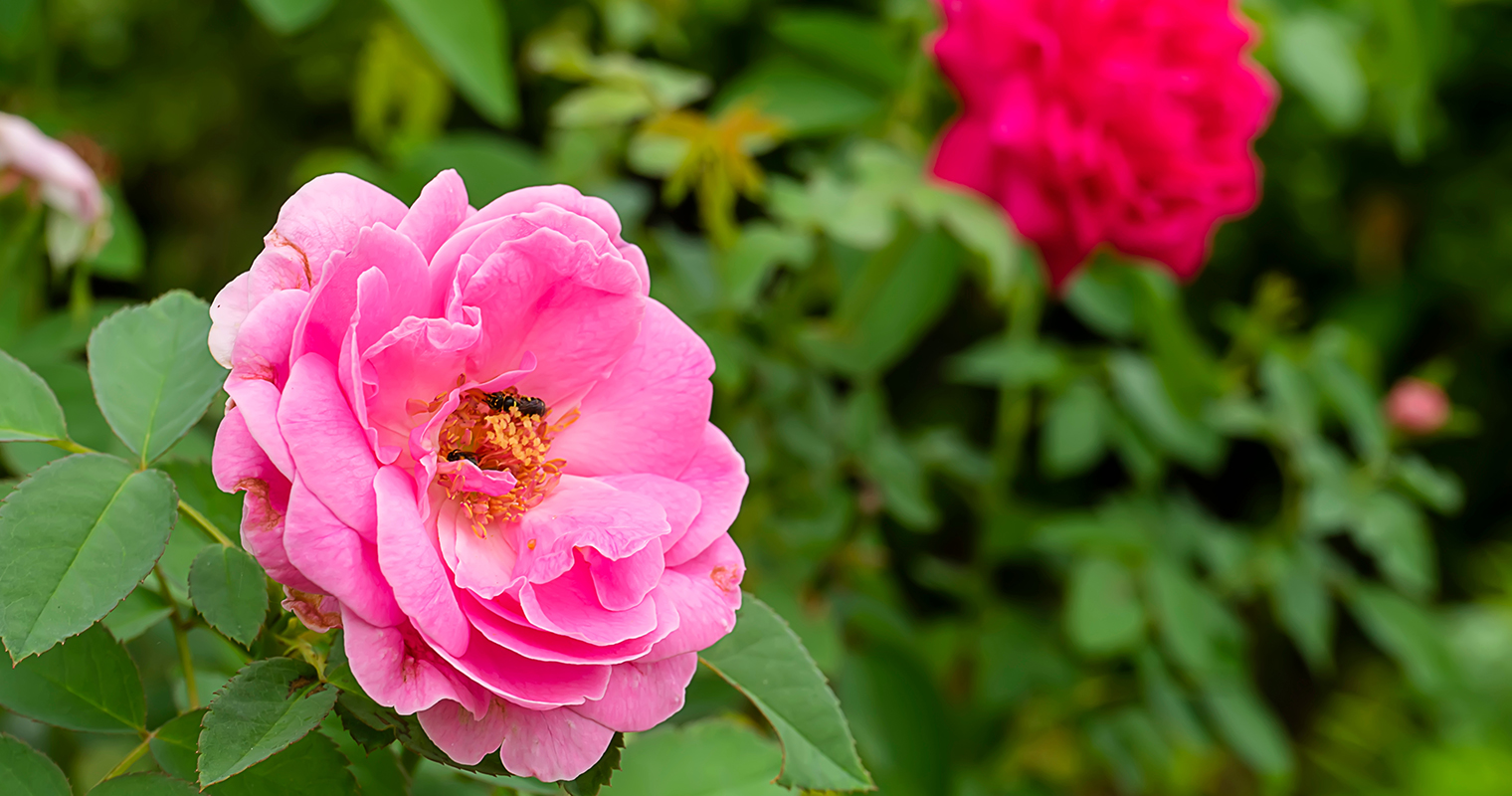
Grapeseed oil
Grapeseed oil is rich in linoleic acid, which helps in improving acne. Due to the antioxidant properties, it helps in preventing clogging of skin pores. It also has anti-inflammatory properties; hence, it reduces the inflammation and redness that accompanies acne.
How to use grapeseed oil?
Put 3 drops of Grapeseed oil on your clean face. Gently massage the oil on your face using your fingertips. Use a tissue to remove the excess oil from the face.
You may also make Grapeseed oil mask by using the following ingredients:
- ½ tbsp brown sugar
- 1 tbsp Grapeseed oil
Mix both the ingredients thoroughly and massage them on your face for about 30 seconds. Leave this mask on your face for about 5 minutes. Remove the mask using a wet washcloth. Rinse the face with lukewarm water. You can apply this facemask once a week. It is soothing and calming to your dry skin.
Jojoba oil
This oil is helpful in treating acne by cleaning the clogged skin pores.
How to use jojoba oil?
Make sure to use a lesser amount on your skin – 1 or 2 drops is enough. Apply the oil using your fingertips and pat onto your face. Do not massage the oil into the skin as massaging can worsen irritation and inflammation, and cause more clogging of skin pores. You may use jojoba oil as a moisturizer in the morning and during the night before going to bed.
You can also add 2 drops of jojoba oil to one drop of tea tree oil. This gives jojoba oil a refreshing and antibacterial boost.
Jojoba oil is also useful as a cleanser. Apply 1-2 drops of the oil to your clean face and massage it gently, paying special attention to areas which have clogged pores such as the area around the nose. Remove the oil using a warm washcloth after 30 seconds.
Olive oil
It has antibacterial and anti-inflammatory properties, which makes it an effective natural remedy in preventing acne.
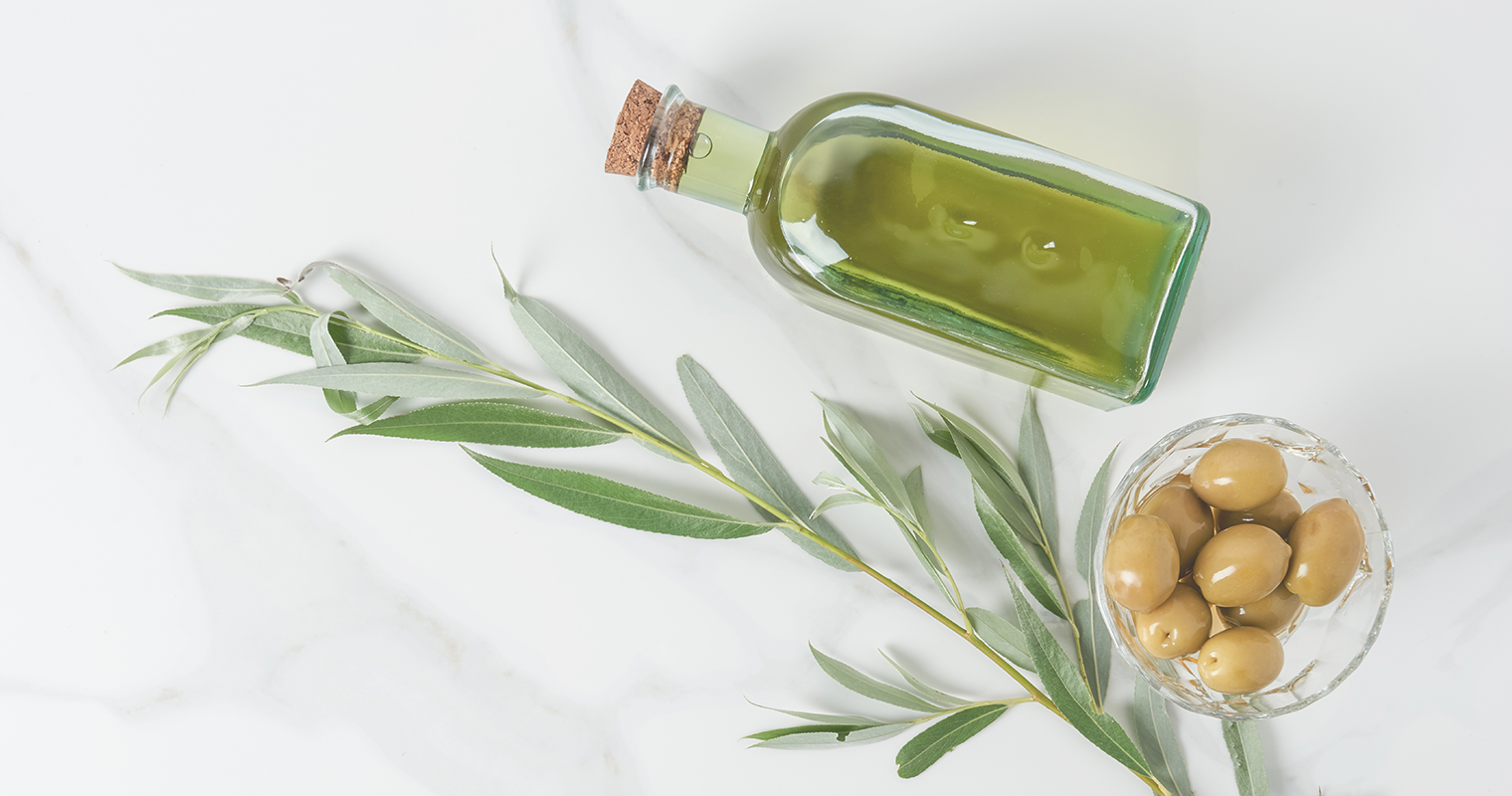
How to use olive oil?
You may use olive oil as a cleanser to open the clogged pores. Take some oil on your palm and apply it on your face. Massage it gently on the face for a few minutes. Let it sit on your skin for about 30 seconds to one minute. Wipe the oil using a warmwash cloth. You can do this routine of cleansing once per day.
Argan oil
Argan oil helps in regulating the production of sebum or oil by the sebaceous glands in the skin. Hence, it may help to treat acne. It also has anti-inflammatory properties that help in reducing inflammation accompanying acne.
How to use argan oil?
After cleansing your face using a mild cleanser, gently massage a couple of drops of Argan oil to your neck and face areas. You can apply the oil both in the morning and during the night before going to bed. You can also apply it 2-3 minutes before using makeup.
Cranberry seed oil
Cranberry seed oil prevents and treats acne by controlling the production of excess sebum.
How to use cranberry seed oil?
Put two to four drops of cranberry seed oil in the palms of your hands and gently massage the oil on your face.
Lifestyle Changes
Follow the below-mentioned tips to avoid eating unhealthy foods at work and at other times during the day:
Have them in your sight
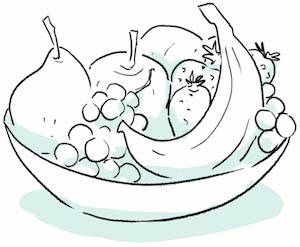 Place a bowl of fruit at your desk: Make sure to keep it fully stocked. The more color and variety you have in your fruit bowl the better it is.
Place a bowl of fruit at your desk: Make sure to keep it fully stocked. The more color and variety you have in your fruit bowl the better it is.
Buy low-calorie snacks
Stock low-calorie snacks that last for a week: Instead of snacking on junk and processed foods, try to eat low-calorie snacks such as nuts, crackers, low-fat cheese, fresh fruits, and vegetables etc.

Plan your meals
Plan and cook your lunches in advance: Every weekend, pre-plan low-calorie healthy lunches for the coming week, shop, cook and freeze them. Salads, sandwiches and leftover dinner are good choices for lunch. If you carry satisfying and healthy lunches with you, then the chances of eating junk food at work become very less. You should also plan your dinner in advance and preferably cook it yourself. This way you will avoid the temptation to eat out.
Create good habits
Replace the habit to visit the vending machine with a new habit: When you get a desire to drink a sugar-sweetened beverage such as coffee or soda, instead of going to the vending machine, visit a coworker or go for a brisk walk for five minutes.
Incorporate healthy snacks
Include lots of fresh leafy green vegetables and fruits in your diet: When you get the desire to eat snacks in between meals grab some fresh fruits and eat them as a snack.
Hydrate yourself
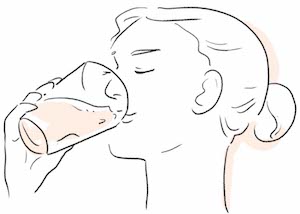 Drink plenty of water: Drink a minimum of eight glasses of water each day. Water not only removes the toxins from your body but also kills the cravings you have for junk foods. It also increases your rate of metabolism.
Drink plenty of water: Drink a minimum of eight glasses of water each day. Water not only removes the toxins from your body but also kills the cravings you have for junk foods. It also increases your rate of metabolism.
References
https://www.webmd.com/diet/features/is-your-diet-aging-you#1
https://www.health.harvard.edu/staying-healthy/the-truth-about-fats-bad-and-good
https://www.healthline.com/nutrition/too-much-sugar#section11
https://www.livestrong.com/article/526247-what-effect-does-skipping-meals-have-on-the-body/







